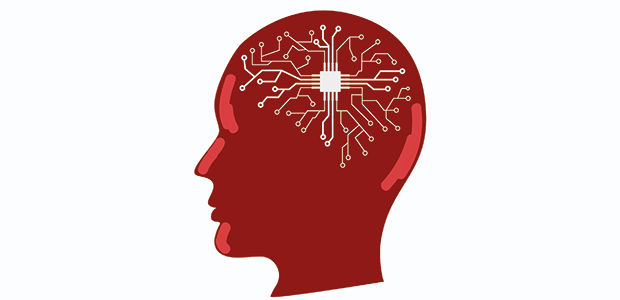
Beyond artificial intelligence: leading with a digital mindset
When I hear people talking about using AI at work, I can almost predict how the conversation will go. Most people have explored ChatGPT and had varying successes with other tools. Some use AI every day, others are considering learning more, and there’s always at least one person that avoids it as if even attempting to participate in this new era will set off a chain reaction to ruin us all. Of course, there is no question that AI is here to stay, and early adopters will be more efficient and quick to advance than their competition.
This article originally appeared in the March/April 2025 issue of Startups Magazine. Click here to subscribe
By Charlotte Dixon, Psychologist and Director, Charlotte Dixon Consulting
The challenge that founders now face goes beyond having the latest technology; it involves how effectively their teams can navigate this change. Even with the best AI solutions available, the true advantage lies in developing a digital mindset on a leadership and team level. Startups that embrace continuous learning, enjoy human-AI collaboration, and view AI as a tool to elevate their work will outperform those that do not. A digital mindset encompasses more than just technical skills; it’s a way of thinking that values adaptability, curiosity, and a willingness to experiment. It means being open to new tools, questioning outdated working methods, and seeing technology as a resource instead of a threat. Being motivated in the AI evolution space means anticipating change, being able to learn from it, and leveraging it to improve your work.
Strategies to promote a digital mindset in teams
Acknowledge the shift
Change is disruptive, and AI is no exception. Open conversations about AI’s role in your startup ahead of introducing it can help prepare teams for this change. Some individuals will see AI as a tool to eliminate repetitive tasks, while others may fear job displacement. Leaders need to address these concerns head-on, offering clarity on AI’s role and how it benefits the team.
Introduce the change curve
This beautifully simple model, developed by psychiatrist Elisabeth Kübler-Ross, outlines the typical emotional journey people experience when going through a change – from shock and denial to resistance, exploration, and finally acceptance. I often ask teams to plot where they are on the change curve in front of their colleagues. This helps to open up discussions around how people are feeling about current changes and highlights areas where support is needed. It also encourages peer support, builds trust, and reinforces collaboration.
Identify skill and knowledge gaps
Mastering skills reduces fear. There will be variation in confidence and knowledge across the team, so doing a skills audit and building team development sessions into your annual strategy will ensure you get everyone motivated and on the same page.
Encourage a culture of learning and exploration
There is so much we are all still learning as AI continues to rapidly evolve, including AI biases and ethical considerations, being open and honest about this is important in continuing to grow as a team. Having something as simple as a shared feed where your team can share newly learnt phrases, acronyms, tools, and prompts can help to build team confidence. When teams feel equipped with knowledge, they are more likely to be motivated to utilise AI’s full potential.
Digital mindset in leadership
Beyond developing a digital mindset, founders have the added challenge of fielding concerns from their team while also learning and adapting themselves. Creating an environment where experimentation is encouraged, failure is seen as part of growth, and AI knowledge-sharing becomes the norm isn’t easy and can take time. Resilience at the leadership level is essential for AI adaptation of the team.
Key things for building resilience as a leader:
- Start with the expectation that adapting to new tools takes time. Integrating AI into your startup is an ongoing process
- Anticipate pushback and see it as an opportunity to address concerns and refine your vision. Whether from your team, investors, or clients, resistance to AI is normal and shouldn’t be mistaken for failure. Not everyone will adopt AI at the same pace. Encourage open discussions where your team can voice concerns without fear of judgment
- Surround yourself with the right people and encourage a culture of adaptability. Strong leaders understand that they don’t have to be the most technologically knowledgeable person in the room. Their role is to build a strong team
- Don’t lose focus on the human elements of the work. AI is an enhancement, not a replacement. It’s important for teams to hear this and believe decision makers feel the same
The role of coaching in AI adoption
Founders often struggle to balance AI implementation with the demands of supporting their team to develop a digital mindset. This is where coaching comes in. Digital mindset coaching can help you to:
- Identify and challenge biases around AI
- Develop strategies to navigate uncertainty and change
- Develop a team-wide digital mindset by building on existing strengths and ways of working
My favourite bit of this process is when leaders and teams discover opportunities they didn’t realise existed. Suddenly the challenges they’ve been avoiding feel exciting and that’s where teams and startups really start to thrive.
Where to start?
Just as AI relies on data for improvement, leaders need data on their teams’ responses to fine-tune their approach. Begin the process of developing a digital mindset by asking: 1. How confident are my team in using AI tools?
2. What support does my team need to actively engaging in AI discussions and knowledge-sharing?
3. Do they feel comfortable experimenting and making mistakes?
AI is transforming industries, but the real competitive advantage comes from teams that develop a digital mindset. Founders and leaders who integrate a digital mindset with AI will build stronger, more resilient teams that can learn and adapt alongside evolving technology.

